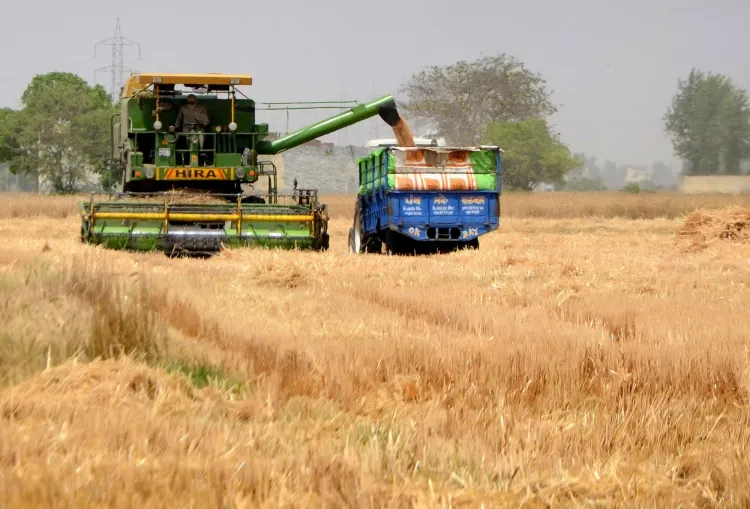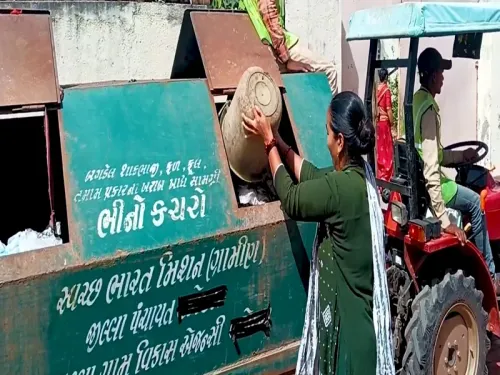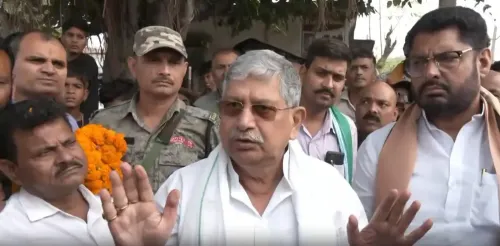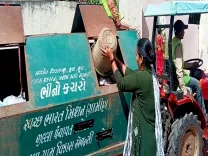Has India’s foodgrain production surged by 6.8% to exceed 1,663.9 lakh tonnes in FY25?

Synopsis
Key Takeaways
- India's foodgrain production has increased by 6.83% in FY25.
- Government initiatives aim to empower farmers and enhance income.
- Collaboration between agricultural institutions is key to success.
- The Clean Plant Programme focuses on quality and disease-free nurseries.
- A national laboratory will be established in Pune for plant research.
New Delhi, May 19 (NationPress) Union Agriculture Minister Shivraj Singh Chouhan revealed on Monday that India's foodgrain output has risen by more than 106 lakh tonnes to reach 1,663.91 lakh tonnes in 2024-25, marking a 6.83% increase compared to the previous year's figures.
"In 2023-24, the nation's total foodgrain production stood at approximately 1,557.6 lakh tonnes. I am pleased to announce that this has grown to 1,663.91 lakh tonnes in 2024-25," Chouhan stated during a press briefing.
"The rabi crop production was 1,600.06 lakh tonnes in 2023-24, and it has now risen to 1,645.27 lakh tonnes," he added.
The Union Minister emphasized that the aim of his ministry is not only to fulfill the country’s own food needs but also to establish India as the global food basket.
Chouhan also called for a united approach with the slogan "One Nation, One Agriculture and One Team" to empower farmers and enhance their income during the farmers' convention - Krishi Samvaad - held in Nagpur on Sunday.
He mentioned that a 15-day initiative starting from May 29 to June 12 will see agricultural scientists visiting villages to assist farmers with sustainable practices and preparations for the Kharif season.
With a team of 16,000 agricultural scientists from the Indian Council of Agricultural Research (ICAR), they will work alongside agricultural extension officers to educate farmers about innovative seed varieties and farming techniques. The government aims to close the gap between laboratories and farmlands, he noted.
Chouhan asserted that the Union Agriculture and Farmers Welfare Ministry, state Agriculture Ministries, ICAR, Krishi Vigyan Kendra, and all agricultural institutions must collaborate effectively. When all entities are aligned and targets established, remarkable advancements in agriculture can be realized.
In another significant announcement, the minister stated that the Centre plans to establish a national-level laboratory in Pune under the Clean Plant Programme. This lab will focus on research regarding original plant species.
Highlighting the importance of increasing agricultural yield, Chouhan explained that the Clean Plant Programme is designed to ensure the availability of pure and disease-free nurseries. For enhanced production, farmers must understand the significance of quality seeds, soil testing, and cost reduction in farming.









